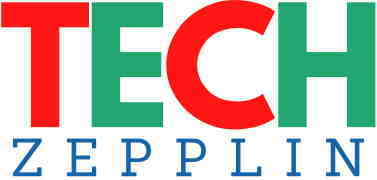Introduction
Titles are one of the most crucial parts of any content piece. They create the first impression in readers’ minds and determine whether they will read your article or not. A well-crafted title not only catches readers’ attention but also ranks high on search engines, drawing organic traffic to your website. As an AI language model, I have compiled 10 power-packed strategies that can help you create titles that rank high on Google and engage readers.
1. Research Your Keywords:
One of the most critical components of a title is the keyword. It is the term users type into the search engine when looking for the information you are offering. Before crafting your title, research the relevant keywords and incorporate them into your headline. Use long-tail keywords to target your niche audience and optimize your content for search engines.
2. Keep It Short and Sweet:
Your title should be concise and catchy, ideally under 70 characters. Shorter headlines are more engaging and easy to read. They are also less likely to get truncated in search results, making them easier to click on.
3. Use Numbers and Power Words:
Numbers and power words create a sense of curiosity and excitement for readers. Use them to grab the reader’s attention and to spark curiosity. For example, “5 Easy Ways to Improve Your Writing Skills” or “10 Secrets to Success in Life.”
4. Be Specific and Clear:
Your title should clearly communicate what the article is about. Use specific words to emphasize the topic and give readers a clear idea of what to expect from your content. For instance, “The Ultimate Guide to Social Media Marketing for Small Businesses.”
5. Ask a Question:
Asking a question in your title creates a sense of intrigue and prompts readers to seek answers. It also gives readers an idea of what your article is about and how it can help them. For example, “Why Do We Procrastinate? Understanding the Psychology Behind It.”
6. Use Emotions:
Titles that evoke emotions such as joy, fear, or excitement are more likely to engage readers. Use emotional words to connect with your audience and make them feel something. For instance, “How to Overcome Your Fear of Public Speaking” or “10 Joyful Moments in a Dog’s Life.”
7. Highlight the Benefits:
Titles that focus on the benefits of reading your article are more likely to engage readers. Highlight the solutions your article offers and explain how readers can benefit from reading it. For example, “5 Nutritious Foods That Boost Your Immune System.”
8. Use Puns and Wordplay:
Puns and wordplay are a fun way to make your title creative and memorable. They add a layer of depth to your headline and make it more intriguing. However, make sure the pun is understandable and relevant to your content. For example, “Donut Worry, Be Happy: How to Improve Your Mood with Food.”
FAQs
Q1. How long should my title be, and why does it matter?
A1. Your title should be concise, preferably under 70 characters. A short headline is engaging, easy to read, and less likely to get truncated in search results, making it more clickable.
Q2. What types of keywords should I use in my title?
A2. Use relevant long-tail keywords to target your niche audience and optimize your content for search engines. Research your keywords to ensure they are popular and useful.
Q3. Can I use puns and wordplay in my title?
A3. Puns and wordplay are an excellent way to make your title creative and memorable. However, make sure it is understandable and relevant to your content.
Q4. How can I make my title stand out in search results?
A4. Use power words, numbers, and emotional words to make your title catchy and engaging. Highlight the benefits of your article to give readers an idea of what to expect.
Q5. Should I ask a question in my title?
A5. Asking a question in your title creates curiosity and prompts readers to seek answers. It also gives readers an idea of what your article is about and how it can help them.
Q6. How can I ensure my title ranks high on Google?
A6. Research your keywords, use specific and clear language, and keep your title concise. Also, use long-tail keywords to target your audience and optimize your content for search engines.
Q7. Why is it essential to have an engaging title?
A7. Engaging titles create a positive impression in readers’ minds, drawing them to read your content. They also increase the chances of your content being shared and linked to from other websites.
Conclusion
Crafting the perfect title is crucial to draw readers and rank high on search engines. Use these ten power-packed strategies to create engaging titles that attract organic traffic and keep readers hooked. Remember to research your keywords, keep it short and sweet, ask questions, and use emotions, puns, and wordplay when appropriate. Add a human touch to your titles, and don’t forget to highlight the benefits of your content.

